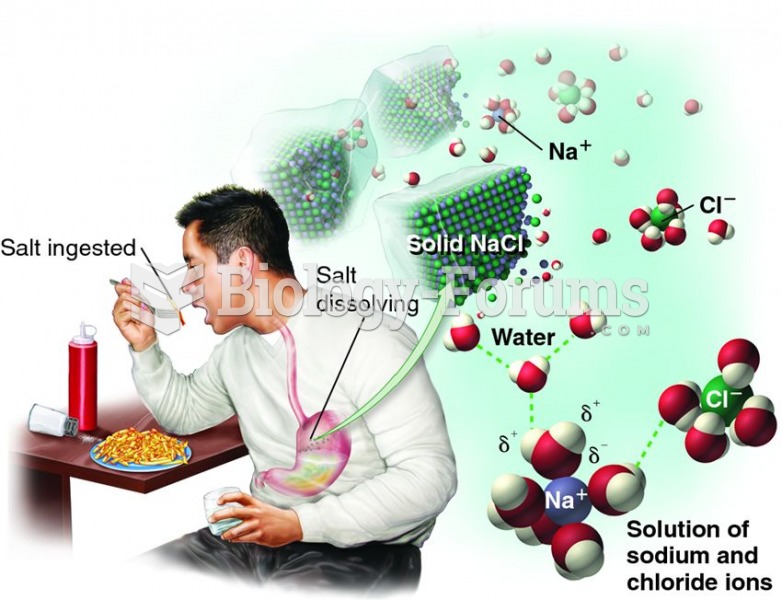Answer to Question 1
Correct Answer: 2
Rationale 1: Bulk-forming agents absorb water, thus adding size to the fecal mass.
Rationale 2: Saline cathartics, also called osmotic laxatives, are poorly absorbed in the intestine. They pull water into the fecal mass to create a more watery stool.
Rationale 3: Surfactants, commonly called stool softeners, cause more water and fat to be absorbed into the stools.
Rationale 4: Stimulant laxatives promote peristalsis by irritating the bowel.
Global Rationale: Saline cathartics, also called osmotic laxatives, are poorly absorbed in the intestine. They pull water into the fecal mass to create a more watery stool. Bulk-forming agents absorb water, thus adding size to the fecal mass. Surfactants, commonly called stool softeners, cause more water and fat to be absorbed into the stools. Stimulant laxatives promote peristalsis by irritating the bowel.
Answer to Question 2
Correct Answer: 2
Rationale 1: Stimulant laxatives should not be used routinely because they can cause laxative dependence, abdominal cramping, and depletion of fluid and electrolytes.
Rationale 2: Because fiber absorbs water and expands to provide bulk, bulk-forming laxatives must be taken with plenty of water.
Rationale 3: A bulk-forming laxative can cause a client to have to strain to have a bowel movement, especially when the client does not consume plenty of water.
Rationale 4: Saline cathartics can produce a bowel movement very quickly.
Global Rationale: Because fiber absorbs water and expands to provide bulk, bulk-forming laxatives must be taken with plenty of water. They can cause a client to have to strain to have a bowel movement, especially when the client does not consume plenty of water. Stimulant laxatives should not be used routinely because they can cause laxative dependence, abdominal cramping, and depletion of fluid and electrolytes. Saline cathartics can produce a bowel movement very quickly.







